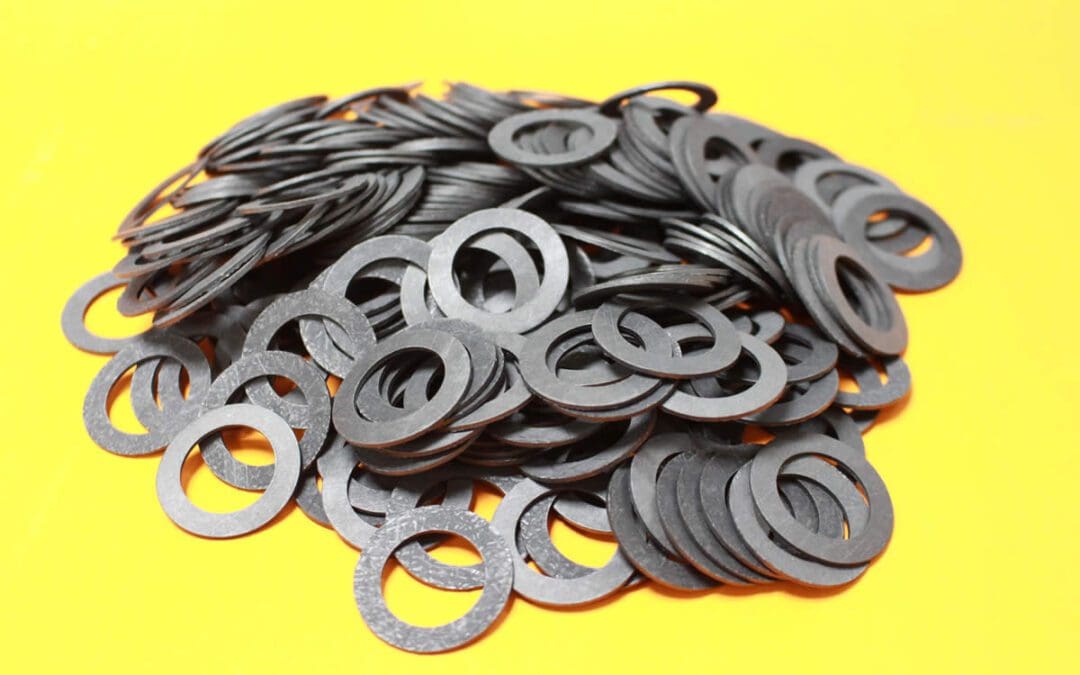Summary. Explore the key differences between stainless steel vs. PTFE washers. Discover how each material’s unique properties make it ideal for specific industrial applications.
In industrial applications, the choice of materials for components like washers is crucial to ensuring optimal performance and longevity. Two popular materials for washers are stainless steel and PTFE (PolyTetraFluoroEthylene). Each material has unique properties that make it suitable for specific applications. This blog will compare and contrast the properties and uses of stainless steel and PTFE washers, address common pain points, and explore their applications in both commercial and industrial contexts.
Properties of Stainless Steel Washers
Durability and Strength: Stainless steel washers are renowned for their exceptional durability and high tensile strength. They can withstand significant mechanical stress and are less likely to deform under load.
Corrosion Resistance: One of the standout properties of stainless steel is its resistance to corrosion. This makes stainless steel washers ideal for use in environments where exposure to moisture, chemicals, and harsh conditions is common.
Temperature Resistance: Stainless steel washers can maintain their structural integrity at both high and low temperatures, making them versatile for various applications.
Electrical Conductivity: Although not as high as some metals, stainless steel does conduct electricity, which can be a consideration in certain applications.
Properties of PTFE Washers
Chemical Resistance: PTFE washers are highly resistant to chemicals, acids, and solvents, making them ideal for use in chemically aggressive environments.
Low Friction: PTFE has one of the lowest coefficients of friction among solid materials. This property is crucial in applications where minimising resistance between moving parts is necessary.
Temperature Tolerance: PTFE can withstand a broad temperature range, from -200°C to +260°C (-328°F to +500°F), allowing it to perform reliably in extreme conditions.
Electrical Insulation: PTFE is an excellent electrical insulator, making it suitable for use in electronic and electrical applications where preventing electrical interference is important.
Issues with Stainless Steel Washers
Cost: Stainless steel washers tend to be more expensive than washers made from other materials. The cost can be a limiting factor for large-scale or budget-sensitive projects.
Weight: Stainless steel is heavier than many alternative materials, which can be a disadvantage in applications where weight reduction is critical.
Machining: While stainless steel is durable, it can be challenging to machine, requiring specialised tools and techniques to achieve precise dimensions.
Issues with of PTFE Washers
Softness: PTFE is relatively soft compared to metals like stainless steel. Under high pressure, PTFE washers can deform, which may affect their sealing properties.
Creep: PTFE can exhibit cold flow or creep, where it slowly deforms under a constant load over time. This characteristic can impact its performance in applications requiring long-term dimensional stability.
Bonding: Due to its non-stick properties, PTFE can be challenging to bond with other materials. Special surface treatments or adhesives are often required to ensure proper adhesion.
Applications in Commercial and Industrial Industries
Stainless Steel Washers:
- Automotive: Used in engines, transmissions, and suspension systems for their strength and corrosion resistance.
- Aerospace: Ideal for components that require durability and the ability to withstand extreme temperatures.
- Marine: Commonly used in shipbuilding and marine applications due to their excellent corrosion resistance.
- Construction: Utilised in structural applications where strength and longevity are critical.
PTFE Washers:
- Chemical Processing: Widely used in systems that handle corrosive substances due to their chemical resistance.
- Food and Beverage: Employed in equipment where non-reactivity and high temperature tolerance are essential.
- Electronics: Used as insulators in electronic devices to prevent electrical interference.
- Medical Devices: Ideal for applications requiring biocompatibility and resistance to sterilisation processes.
Conclusion
Choosing the right material for washers depends on the specific requirements of the application. Stainless steel and PTFE washers each offer distinct advantages and face unique challenges. Stainless steel is favoured for its strength and corrosion resistance, making it suitable for heavy-duty and high-stress environments. PTFE, on the other hand, excels in chemical resistance and temperature tolerance, making it ideal for specialised applications in aggressive environments.
At Stephens Gaskets, we offer a wide range of high-quality stainless steel and PTFE washers tailored to meet the diverse needs of various industries. Our expertise and commitment to quality ensure that you receive the best solutions for your specific applications. Contact us today to learn more about our products and how we can help you choose the right washer material for your needs.

